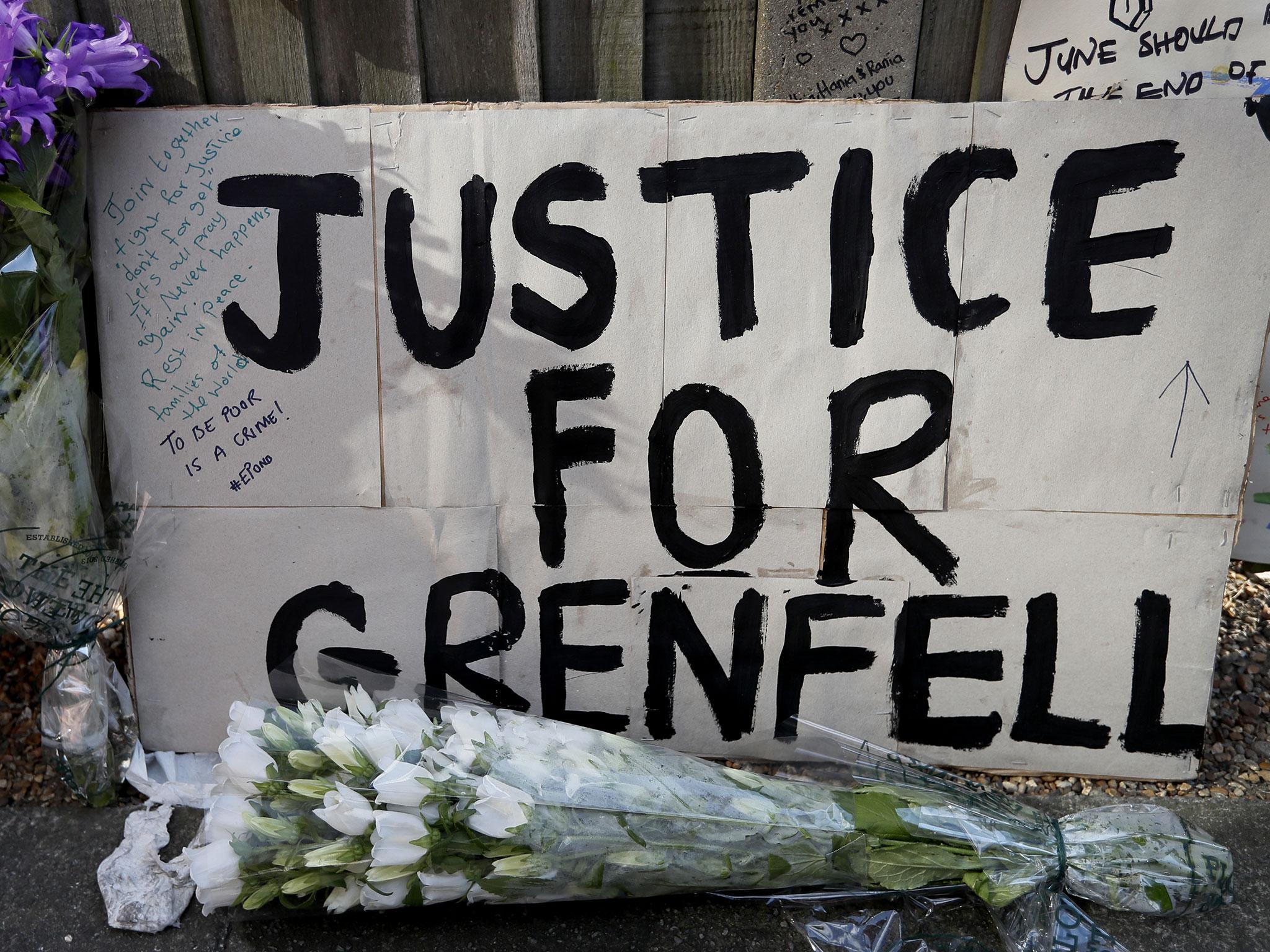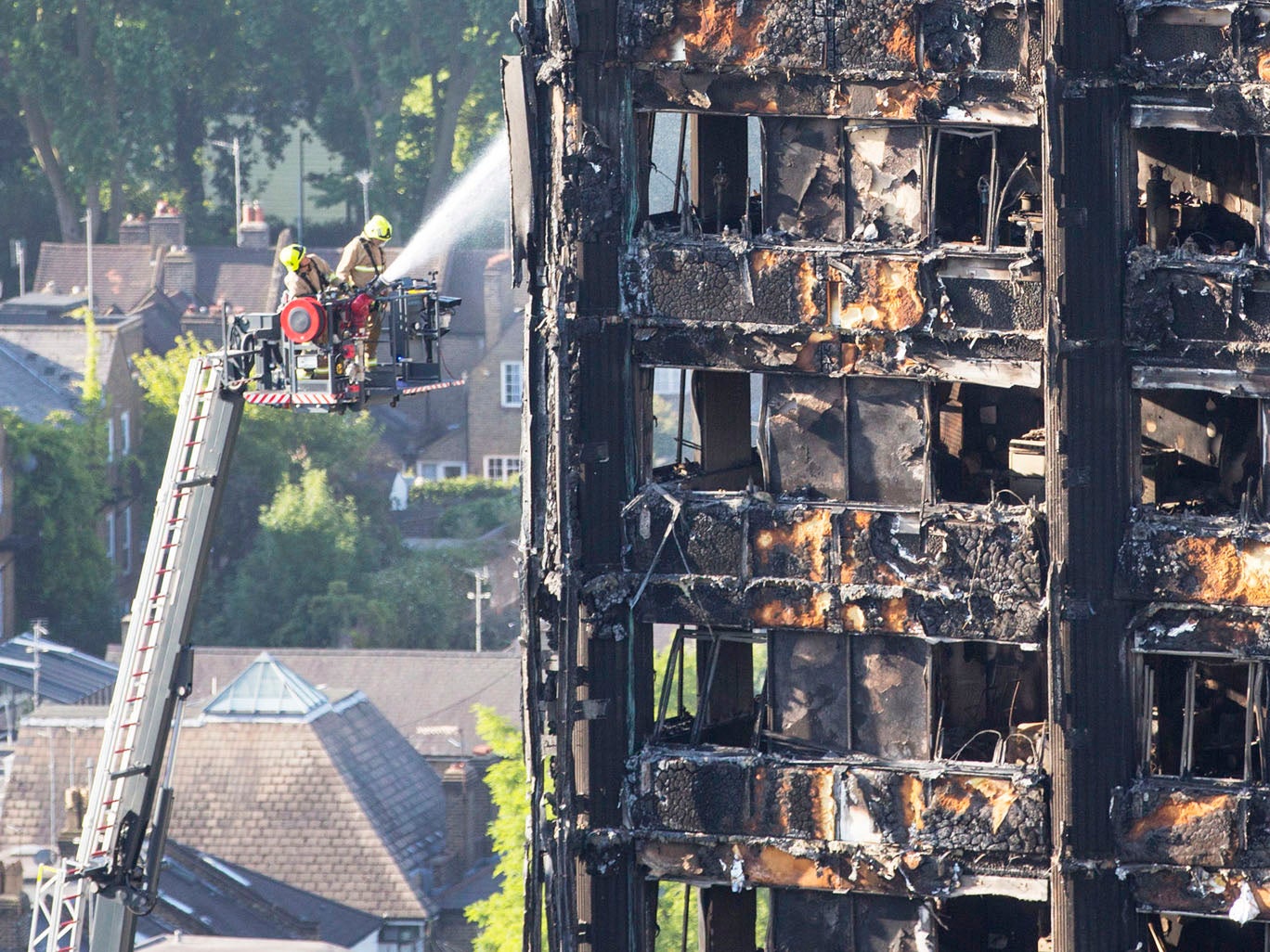Philip Hammond says sprinklers 'may not always be the best technical way of ensuring fire safety'
‘I think we should be proud of the way we cleared out a lot of the unnecessary regulation to make life easier,’ the Chancellor says
Your support helps us to tell the story
Our mission is to deliver unbiased, fact-based reporting that holds power to account and exposes the truth.
Whether $5 or $50, every contribution counts.
Support us to deliver journalism without an agenda.

Louise Thomas
Editor
Philip Hammond has said fitting sprinklers “may not always be the best technical way of ensuring fire safety in a building”.
Asked on BBC1’s The Andrew Marr Show whether the Government had acted on safety recommendations after a fire at Lakanal House in Camberwell, south London, in 2009, the Chancellor said the Government would wait for the public inquiry before making changes in regulation.
The Prime Minister, Theresa May, is under pressure after the devastating fire in Grenfell Tower trapped people in their beds and killed 58 people last week.
Opposition politicians say the Government ignored recommendations from a 2013 review after the fire at Lakanal House killed six people.
“We have looked, obviously, at those recommendations and what has happened to them,” Mr Hammond said. “My assessment is that we have responded correctly and appropriately to those recommendations.”
When he was asked whether the Government should launch an urgent campaign to install sprinklers in tower blocks, schools and other public buildings, Mr Hammond said: “If the conclusion of a proper technical evaluation is that that is the best way to deal with the problem, then of course.
“My understanding is that the best expert advice is that retrofitting sprinklers may not always be the best technical way of ensuring fire safety in a building. Now if it is, it should be done.
“But let’s get the technical advice properly evaluated by a public inquiry and then let's decide how to go forward.
“But let me be clear, if there's something that needs to be done to make buildings safe then it will be done.”

When Andrew Marr said we don't need technical expertise to tell us sprinklers put out fires, citing the Fire Brigades Union pointing out no one has died in a fire where sprinklers have been fitted, Mr Hammond replied: “These are technical questions. Let's leave it to the inquiry.”
Mr Marr pushed the Chancellor further, reiterating that we don't need experts to tell us sprinklers put out fires.
Mr Hammond said: “What I'm hearing from the leading fire safety experts is that it isn't necessarily necessary to retrofit sprinklers to make a building fire safe. Now I don't want to call that judgement because I'm not an expert.
“When the inquiry produces its findings. We will act on them.”

The Chancellor also said he understood the cladding used at Grenfell Tower, which is banned in Germany and the US, is also banned in the UK.
He said this raises two questions: “One is are our regulations correct, do they permit the right kind of materials and ban the wrong kind of materials?
“The second question is, were they correctly complied with? That will be a subject that the inquiry will look at, it's also be a subject that the separate criminal investigation will be looking at."
Asked about the former Tory housing minister Brandon Lewis, who boasted about getting rid of regulations, Mr Hammond said people should be proud of how the Government cleared out unnecessary health and safety regulations.
“Getting rid of regulations in order to do regulation properly, smart regulation, effective regulation ... we did have a jungle of legacy regulations in this country and I think we should be proud of the way we cleared out a lot of the unnecessary regulation to make life easier, particularly for small businesses, but nobody wants to compromise on critical safety regulations, that's not the case at all."
He added: “Regulation isn't always bad. Good regulation is what we need.”
Subscribe to Independent Premium to bookmark this article
Want to bookmark your favourite articles and stories to read or reference later? Start your Independent Premium subscription today.

Join our commenting forum
Join thought-provoking conversations, follow other Independent readers and see their replies
Comments